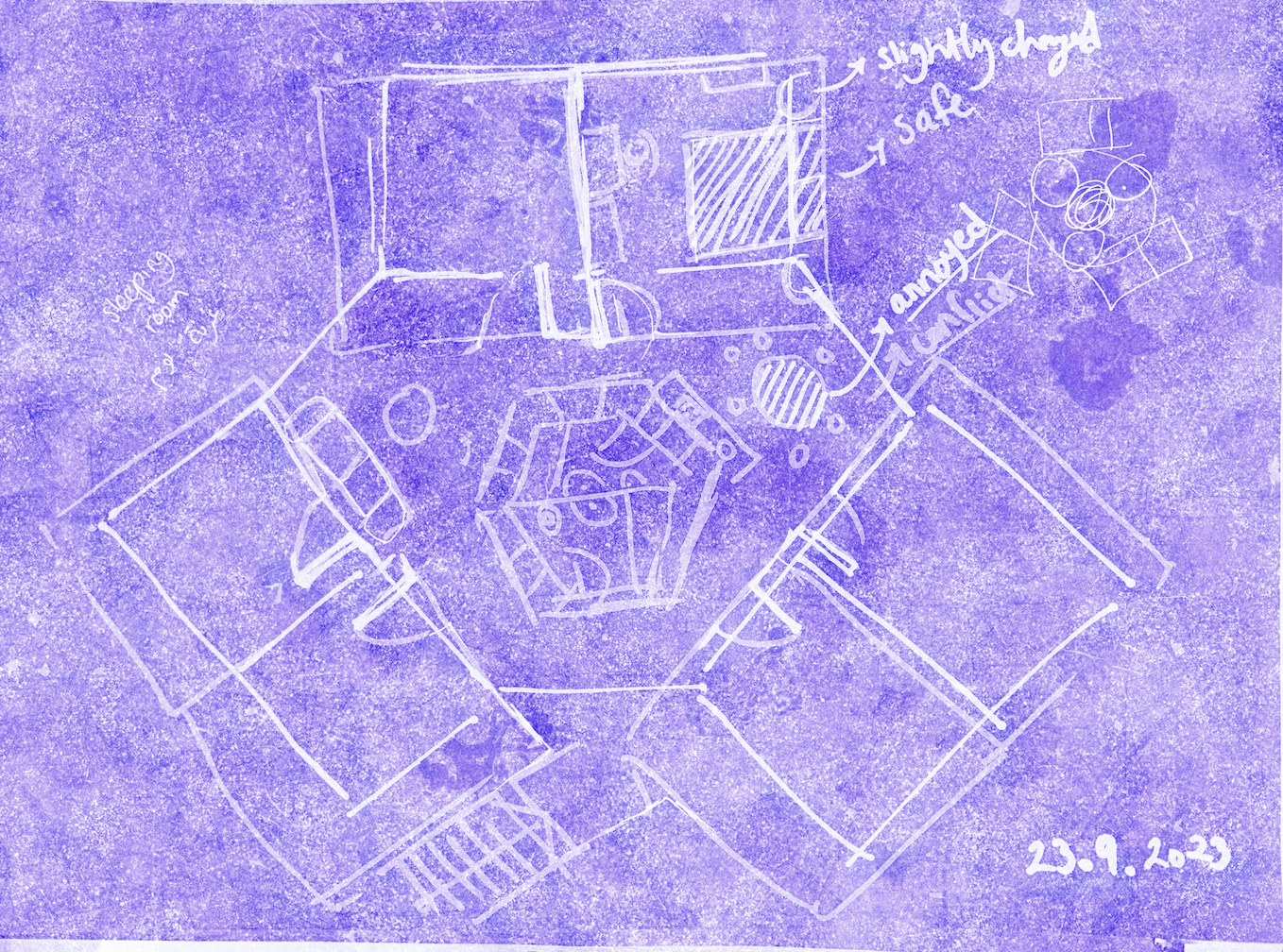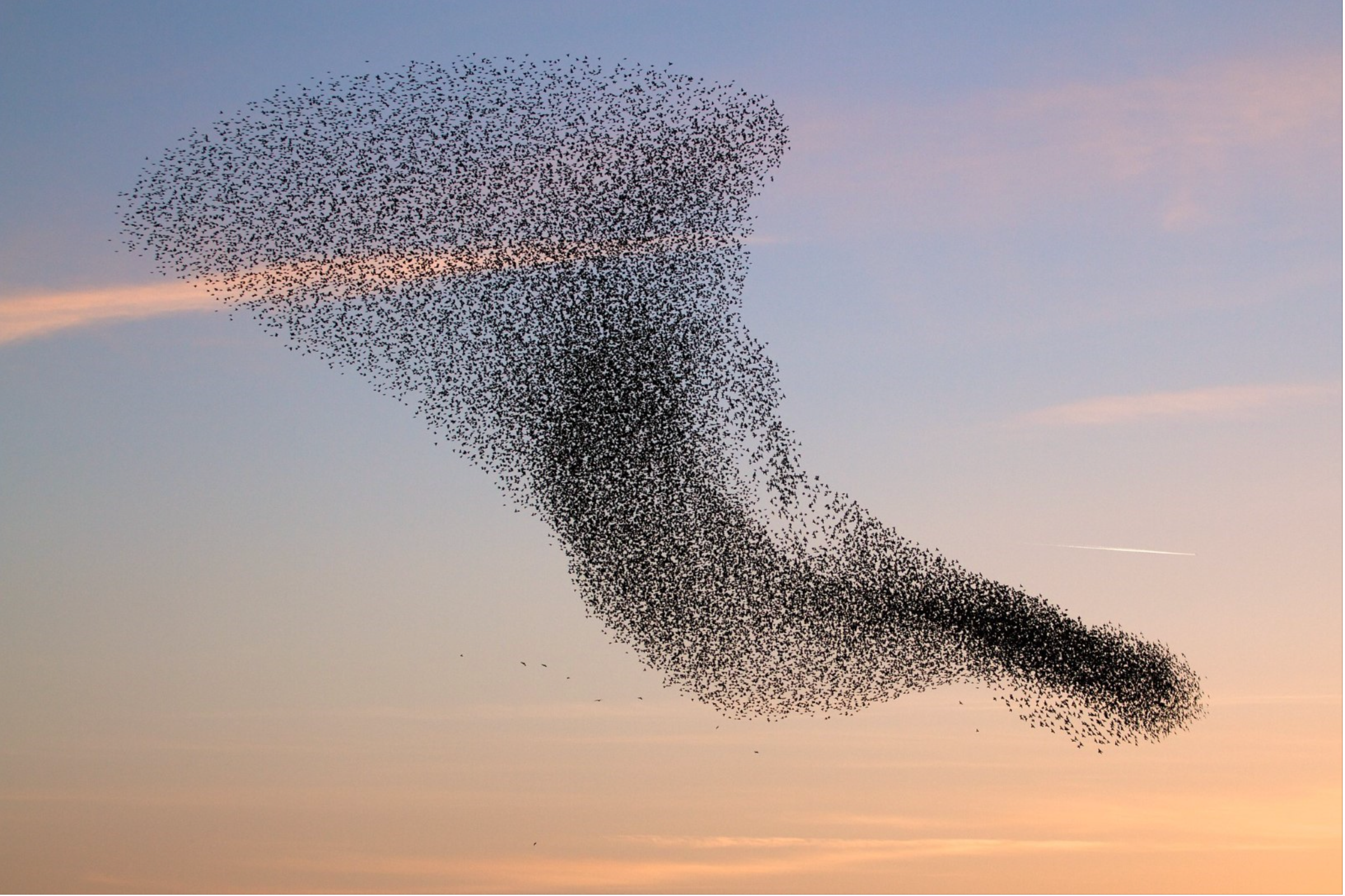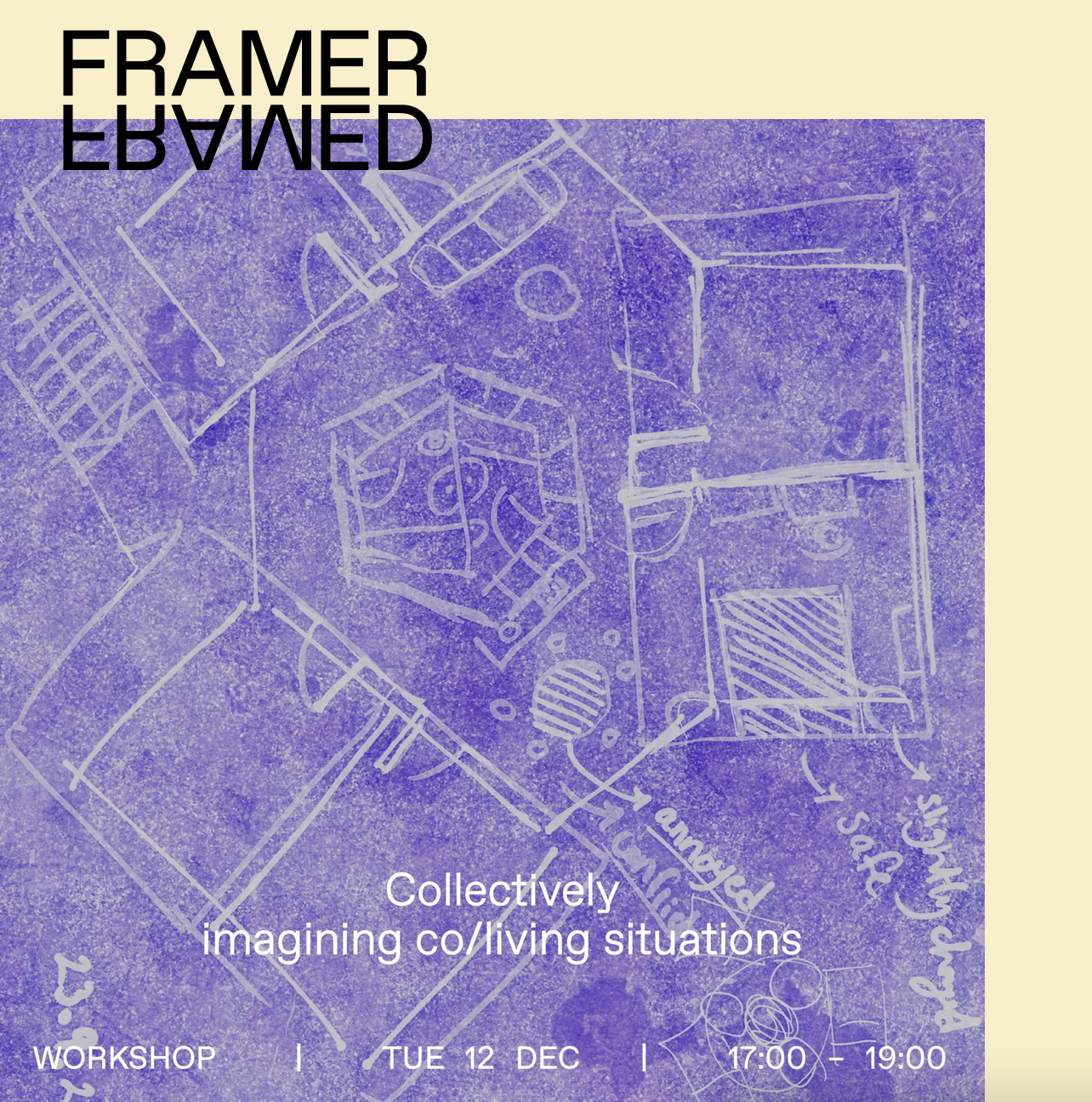What are the interconnections between co-living situations and various factors such as migration, gender, ability, health, and cultural background?
How does shelter and living situation influence the sense of belonging and alienation, and how can shared knowledge and experiences foster translocal solidarity and the adoption of informed practices?
How do co-living situations shape the availability of communal and personal space, and how does it affect the well-being and agency of individuals?
Communal living space is everywhere, even in increasingly hyper-individualistic modern landscape. It takes on many forms, which share some aspects, and differ in many more. People find themselves in such spaces for various reasons: willingly and unwillingly; comfortably and not; temporarily or (as much as that is possible) permanent. Urgent questions appear together with parallels that can be drawn between them.
Coliving situations are shaped by interconnected stratifications of deeply ingrained histories, associations, materials, cultures, verticals of power. They inform the availability of space, communal and personal, and how being there makes people feel. How much agency people that live in a space have over its form. How the space is structured. Which interactions and movements it allows for, encourages, or forbids. How much upkeep it requires. How all of these things can change over time.
Our research will involve gathering experiences and stories exploring co-living situations and their interrelation with by spectrums of migration, gender, ability, health, cultural background, and others.
By gathering, sharing, and creating knowledge on how shelter and living situation influence belonging and alienation, we hope to offer an opportunity for people in different forms of community to find common grounds, build translocal solidarity, and trying/adopting practices informed by the experiences of others.
Agata Guńka
Agata is a passionate mushroom picker of various interests with roots in Eastern Europe, doing work related to food (& its autonomy), agroecology, as well as collaborative living spaces and their limitations.
yourfriendkas
Kas is an Amsterdam-based friend, artist, researcher, with roots in Central Asia, involved in various practices related to open/communal space and access to it.
Kas and Aga are Amsterdam-based friends, artists and researchers, with roots from Central Asia and Eastern Europe. Through their work involved in various practices related to open/communal space and access to it and translocal solidarity, they try to (co)examine surroundings through recognizing fuzzy boundaries; highlighting through "both"/"and also", instead of "either/or"; seeing non-linear / non-binary / plural, and the necessity to operate from questions and possibilities instead of answers.
In-progress co/living (hybrid event)
04.02.2024, 04.02.24, 14:00 – 15:00

The “Co/living: Points of Entry” project will do a short interactive presentation on the knowledges, perspectives and practices for shared living environments, which they gathered from conversations, workshops, and other experiences throughout their research in the 2023 School of Commons cohort. Find out more
Consensual Questioning and Collective Implementation
17.10.2023, 17.10.23, 18:00 – 20:00

Consensual Questioning and Collective Implementation is a lecture and workshop event, during which Pendar Nabipour, a visual artist, independent curator and art educated based in Rotterdam, the Netherlands will introduce possible answers to these questions in relation to his research project Open Source Governance. Find out more
Collectively imagining co/living situations
12.12.2023, 12.12.23, 17:00 - 19:00

During the workshop, participants will collectively engage with shared living situations and their interrelation with spectrums of migration, gender, ability, health, cultural background, and others, addressing the current housing crisis and its implications. Find out more